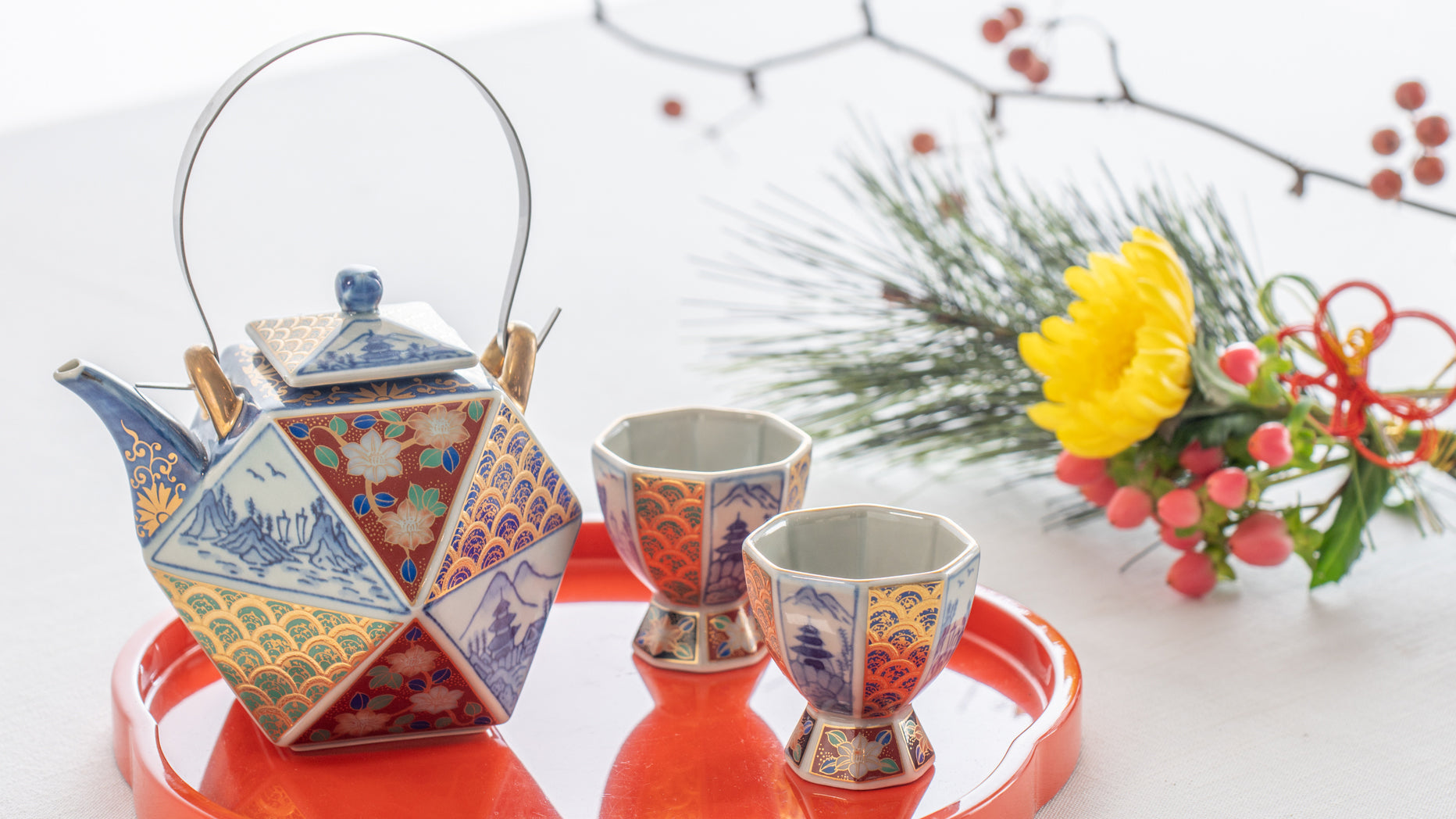
Guide to Sake Sets
Written by Team MUSUBI
Sake is as much about how it’s served as it is about the drink itself. A slender tokkuri carafe that pours smoothly, a small sakazuki cup that rests comfortably in your hand—these details define the taste, the mood, and even the memory of the moment.
When the sake items come together in design and feel, they create a sense of cohesiveness at the table and a heartfelt spirit to the occasion—whether you’re enjoying a quiet evening at home, sharing dinner with friends, or preparing a gift for someone special.
This guide covers the basics of matching sake sets, how different carafes and cups shape the experience, and the styles suited to settings that invite a gentle kanpai with sake.
Table of contents
Shapes and Styles of Sake Vessels
A Japanese sake set typically includes a carafe and small sake cups, both designed to suit different ways of enjoying sake.
The most familiar carafe is the tokkuri, whose bottle-like shape and narrow neck help retain heat when serving warm sake.
Another popular style is the katakuchi, a wide-mouthed pitcher with a spout that makes pouring easy, often used for chilled sake.
Some festive sets include larger sake pots with handles and spouts. Traditionally made in lacquer for weddings and New Year’s celebrations, porcelain versions now convey the same celebratory spirit.
The cups are just as diverse. The ochoko, a small, round sake cup, is a common style for everyday drinking.
The slightly larger guinomi has a more relaxed feel.
The flat, shallow sakazuki is often used in formal rituals such as weddings and New Year’s toasts. Its broad shape enhances the aroma of sake and is especially suited to enjoying small sips.
Each type has its place—whether for savoring warm sake on a relaxing night, enjoying it chilled with friends, or raising a glass during a celebration.
Japan’s pottery regions also bring their own character to sake sets. Kutani ware and Hasami ware showcase bright overglaze designs on porcelain, while Bizen ware offers an earthy contrast with organic textures shaped by wood firing. From refined porcelain to rustic clay and modern glassware, the diversity of styles reflects the richness of Japan’s sake culture.
Everyday Sake Sets
As sake becomes more available around the world, it’s now seen as an everyday, versatile drink—chilled with summer meals, warmed in winter, or shared casually at home. These sets are made for those moments.
For Two
A set for two is all about comfort and ease: one carafe, two cups, and a little style at the table. The Yoshidaya Sakura and Bird Sake Set brings a burst of color with blossoms and a lively bird, turning an ordinary drink into something cheerful.
The frosted texture of the White Fubuki 3-Piece Glass Set gives a light, airy feel—especially nice with chilled sake on a warm evening. For a hint of color, choose the Pink Fubuki 3-Piece Sake Set, its soft blush brightening the table.
The Sea Creatures in Blue Sake Set, crafted exclusively for MUSUBI KILN, has a casual charm and a hint of glamour with the gold lining around the mouth of the tokkuri. Each piece is hand-painted with dynamic brushstrokes where no two are exactly alike.
For a Group
When friends or family are around, bigger sets make sure everyone has a cup in hand. The Old Imari Sansui Sake Set, painted with classic landscapes, comes with five small sake cups and two tokkuri bottles to cater to a small crowd.
Painted with delicate florals edged in gold, the Hanazume Sake Set is a true showpiece. With its ornate detail and multiple cups, it’s a set you’ll want to use for formal toasts and seasonal ceremonies.
Sake Sets for Special Occasions
Some sets are made for life’s more festive moments, such as birthdays, anniversaries, and holiday gatherings, where celebration takes center stage. These pieces stand out with their rich decoration and symbolic designs.
The Pine, Bamboo, and Plum Sake Set carries traditional good-luck motifs and is perfect for gatherings that feel a little festive. Known as shochikubai in Japanese, pine, bamboo, and plum together symbolize hope and good fortune—pine and bamboo stay green through winter, while plum is the first to bloom in spring.
Equally striking is the Old Imari Kinrande Sake Set, with seigaiha wave patterns in vivid colors layered with gold and sansui landscapes in blue-and-white. The multi-faceted sake pot has a distinctive presence, while the footed cups make each toast feel special.
The White Toso Sake Set, a style long tied to Japanese New Year traditions, carries a quiet symbolism. Traditionally used for toso—spiced sake marking the first drink of the year—it also suits moments of distinction, the wide rims of the cups releasing the aroma of sake with each tilt.
Sake Sets for Gift-Giving
A sake set makes a thoughtful present—something both beautiful and useful, carrying meaning that lasts well beyond the day it’s given. Whether for weddings, anniversaries, or as a gesture of appreciation, these sets bring a sense of care to the act of giving.
The Pink Kannyu Sake Set features a wide-mouthed katakuchi with a delicate crackle glaze in soft rose. There’s something captivating about the way sake flows smoothly from its spout into the waiting cup, turning each pour into a part of the sake experience. It’s a set that feels both graceful and heartfelt.
The Goma Sake Set, characteristic of Bizen ware, has a natural, ash-marked surface that gives it both texture and depth. Beyond its rustic beauty, Bizen clay is prized for softening the sharpness of sake and bringing out its aroma. Packaged in a paulownia box, it’s a gift that carries both tradition and substance.
Trays That Complete the Experience
A well-chosen tray can tie everything together, making a sake set feel more inviting and giving it a cohesive look. The Japanese Ash Round Tray highlights the natural beauty of wood with its light tone and smooth surface, gently framing both sake and sweets.
The Reversible Half Moon Shaped Tray showcases black and red coatings with a subtle sheen, allowing you to adjust the atmosphere to match the occasion.
A sake set brings everything together—the vessel for pouring, the cups for sharing, and sometimes a tray to frame the moment. Having the pieces matched as a set makes serving easier and gives the occasion a natural rhythm. To learn more about sake items in detail, see our article Guide to Japanese Sake Items.




















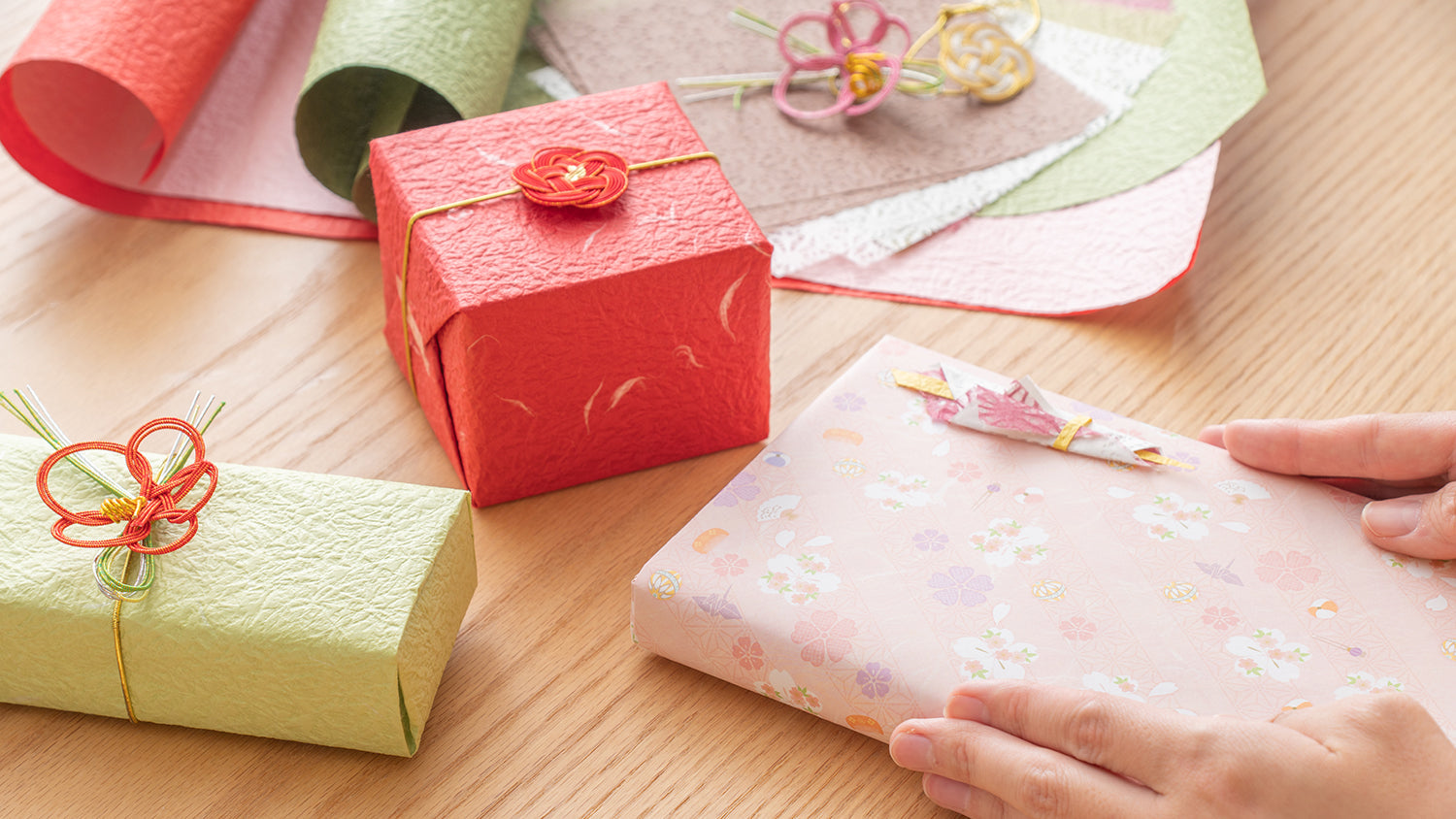
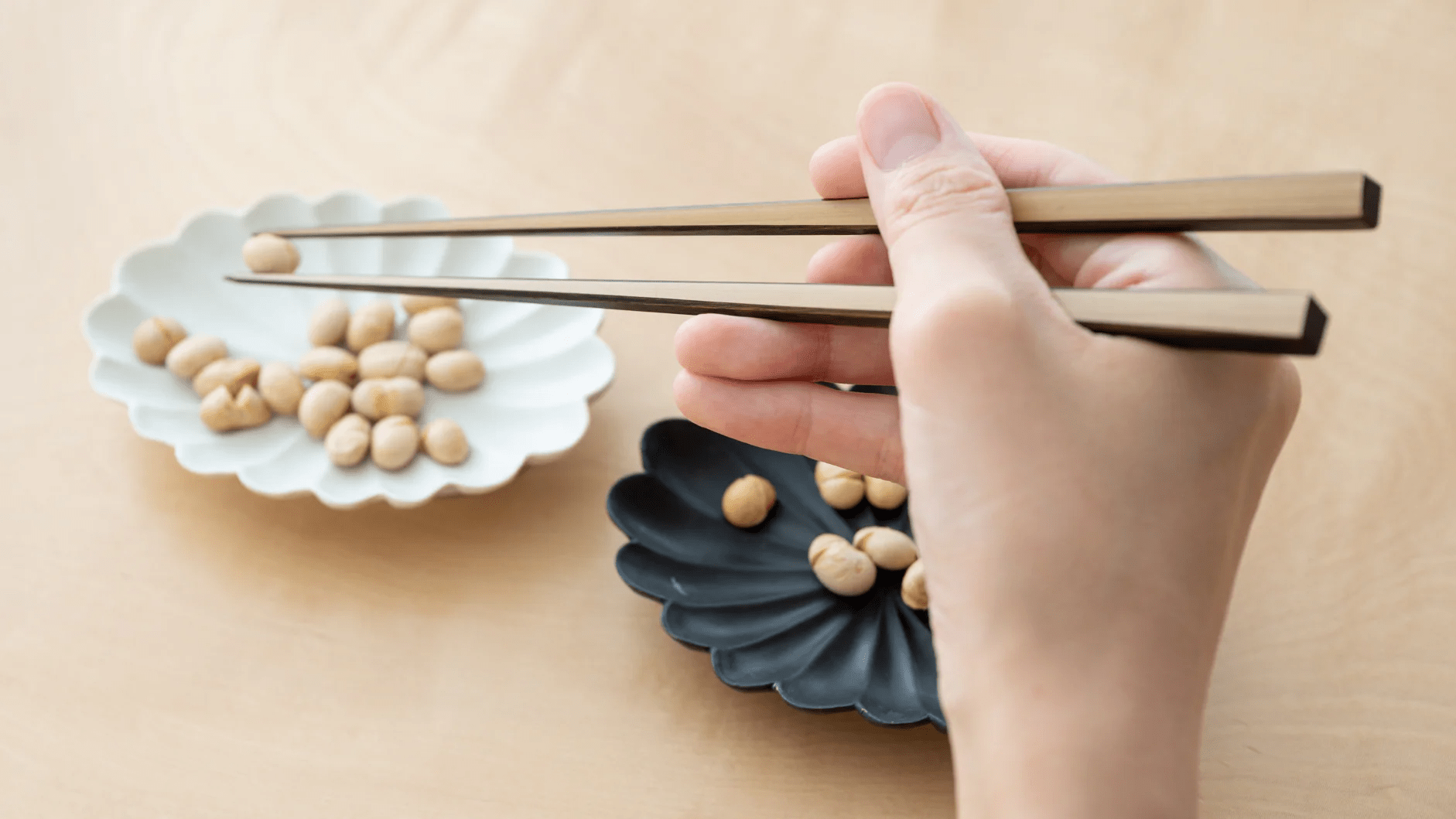
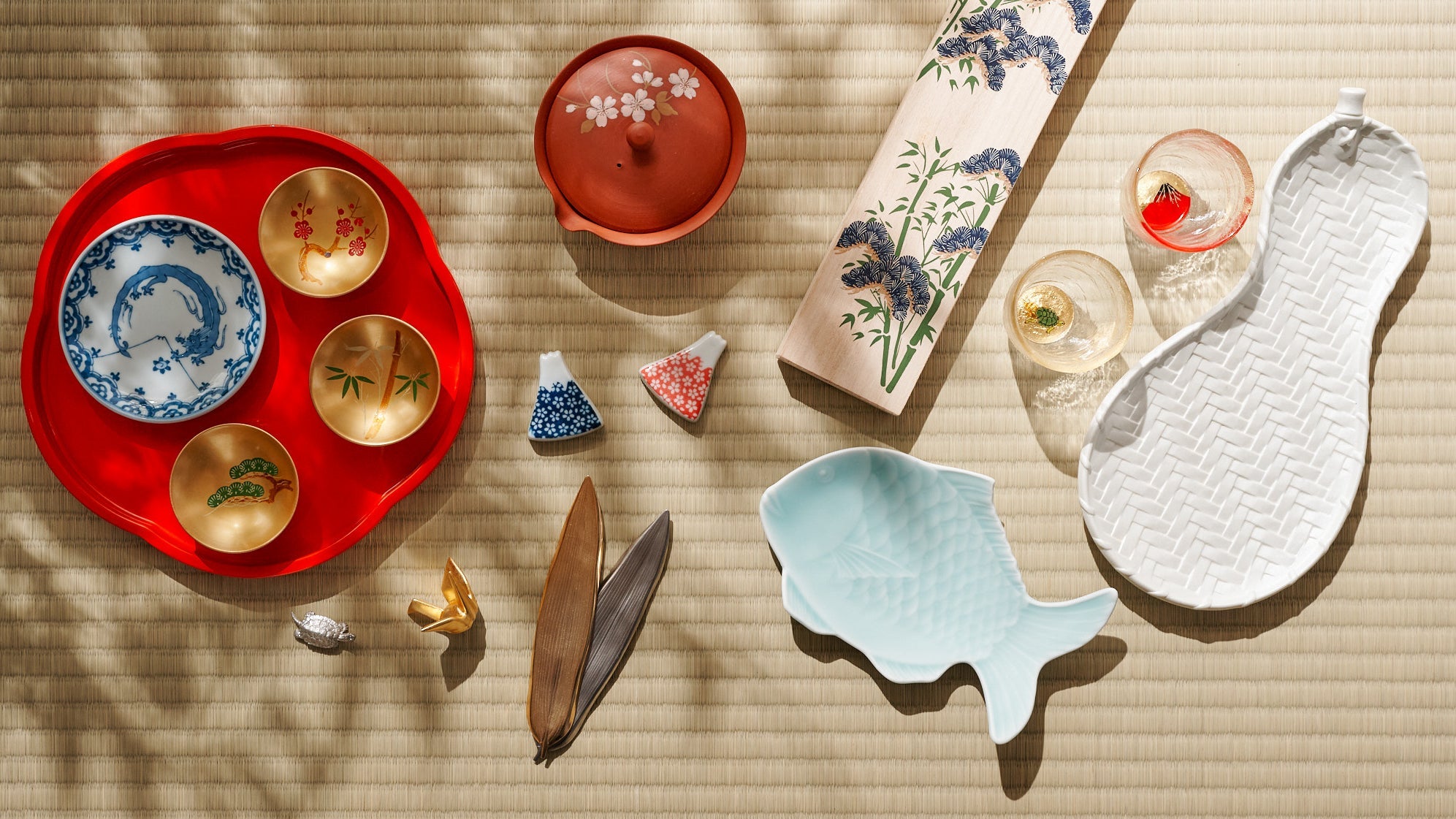

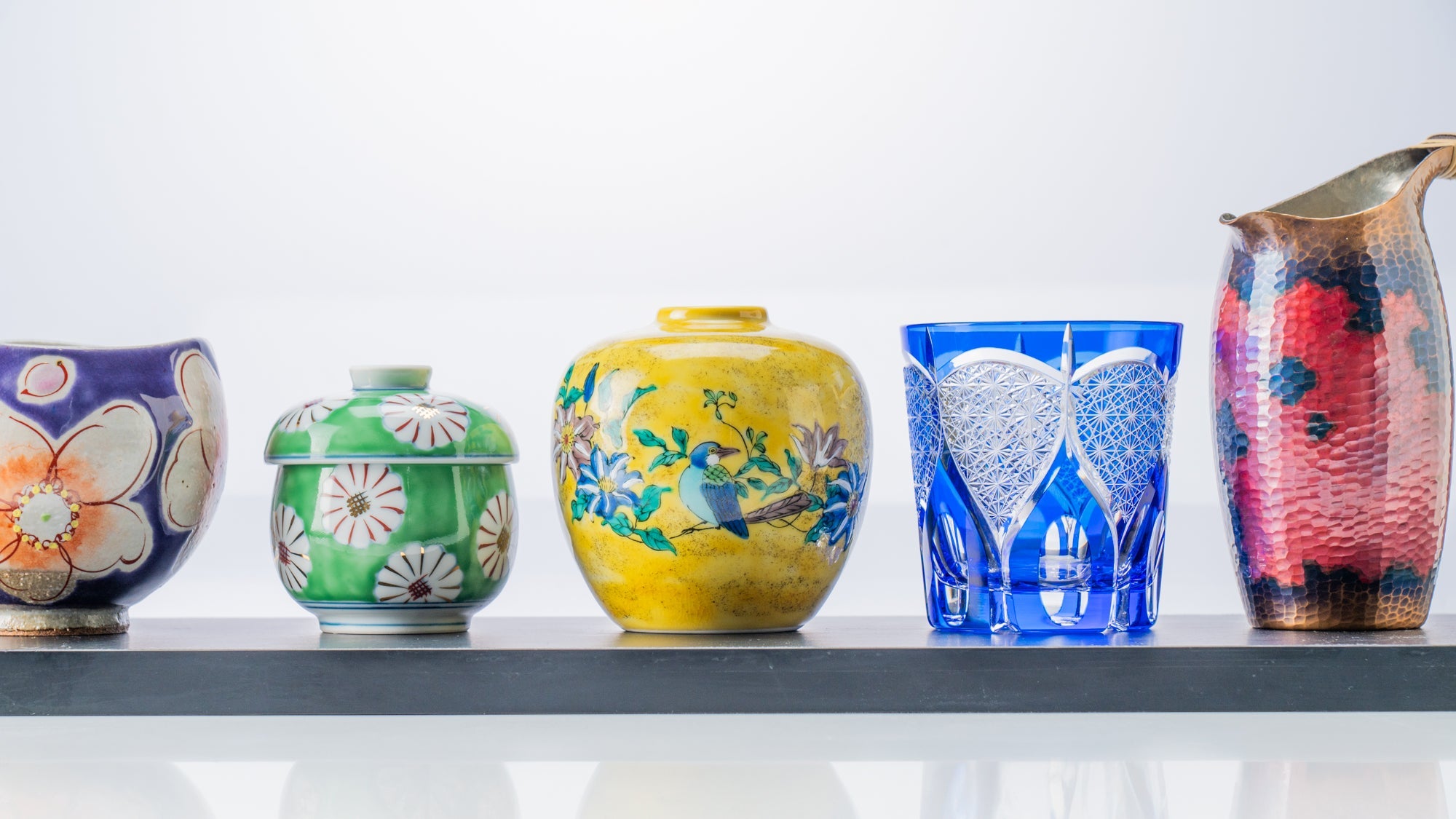
2 comments
Harold We thank you very much for reaching out to us. We will contact you from 【infomusubikiln.com】. Could you kindly wait for us to reach you? Thank you.
Team Musubi
There’s a blue sake pitcher on your facebookvad, but I can’t find itbm on the website.
Harold O Koenig
Leave a comment
This site is protected by hCaptcha and the hCaptcha Privacy Policy and Terms of Service apply.